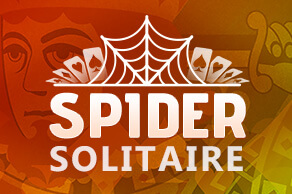ED. NOTE: For the holidays, Comic Riffs has decided to count down the comics-world elements and developments for which we’re most grateful. Because that lengthy list could carry us clear till the years-away debut of the next Spider-Man film — if not at least till the #SonyHack of the next Spider-Man film script — we’ve also decided to cull our list to “The 12 Days of Gratitude.” So consider this akin to the “12 Days of Christmas” song (though we vow in advance not to resort to “10 Star-Lords a-leaping” or “7 Curt Swans a-swimming,” lest we then stoop to “3 Renee French Hens”). So without further ado or to-do…
–M.C.
THE 12 DAYS OF GRATITUDE:
NO. 3: The freedom to satirize, spoof and parody — and the courage of those artists whose freedom of expression is challenged.
PERHAPS THAT’S what rang most wrong of all to many Americans, even those who had zero interest in seeing Seth Rogen’s “The Interview.” We may experience impingements upon our civil liberties on a regular basis, but take away our freedom to get at a comedy — especially when it mocks an authority figure, particularly a dictator — and we’ll quickly take up arms, or at least hashtags. (And O, if only the Comedy Central-departing Stephen Colbert had had one last crack at Kim Jong Un.)
Occasionally, an American political cartoonist feels pressured to apologize for an editorial artwork, but in general, U.S. satirists are fairly free, of course, to let their “Don’t Tread on Me” flag fly. (And thank you for that, Benjamin Franklin, on several counts.) In a post-Falwell/Flynt world, especially, the protection given to those who want to belittle leaders and other public figures is so great and grand as to largely be taken for granted.
Yet when word or visits come from foreign shores, U.S. cartoonists get that stark reminder of how fortunate they are. When Syrian artist Ali Ferzat is attacked by government forces for his cartoon commentary, we are both outraged and remember to be grateful. When Indian cartoonist Kanika Mishra and Palestinian cartoonist Majda Shaheen receive Courage in Editorial Cartooning awards this year for their bravery against dangers that would restrict their free speech, we applaud even as we appreciate what we have. And when Danish editor Flemming Rose comes to Washington recently to talk about the very real threats to his life because of the Muhammad cartoon controversy (as he covers in his book, “The Tyranny of Silence: How One Cartoon Ignited a Global Debate on the Future of Free Speech”), we are reminded that free speech is not absolute.
And then there is the continuing case of Zunar, the Malaysian political cartoonist who visited Washington in 2014 and spoke of all the tactics he says the government uses to try to muzzle him — from putting him behind bars for his cartoons, to wrecking his equipment and threatening those who work with him.
In our mindful gratitude for being able to satirize any leader, Comic Riffs republishes our piece on Zunar and the heat he received for a particular 2014 cartoon:
AS THE MYSTERY surrounding the March 8 disappearance of the Malaysian Airlines plane has deepened with far more questions than answers, Comic Riffs decided to seek out the opinion of a commentator from that country.
Zulkiflee Anwar Ulhaque — better known by the nom de toon “Zunar” — has long been critical of the Malaysian government, which has jailed the political cartoonist for his work.
So what is Zunar’s take on MH Flight 370 — the Beijing-bound Boeing that vanished with a reported 239 people aboard — as well as on his nation’s response to the confounding event?
“The Malaysian government hid so [much] information about the jet. Now, the government tries to blame the pilot to cover up their own weakness in handling this case,” says Zunar, who in 2010 was arrested and briefly charged with sedition over a book of his political cartoons.
“Should the government act fast and [be] ready to share the information with other countries like the U.S. and China, … it will be a different scenario. But the question is: Why hide it?” continues Zunar, who in 2011 received the Courage in Editorial Cartooning Award from the Cartoonists Rights Network International.
Zunar tells The Post’s Comic Riffs that he holds his government accountable for its response at the highest levels.
“Prime Minister Najib [Razak] only opens his mouth on the seventh day,” he says, “when he sees an opportunity to blame opposition leader Anwar Ibrahim merely by the fact that the pilot, Zaharie [Ahmad Shah], is [an] Anwar supporter.”
Zunar put his opinion to paper in this no-holds-barred artwork, which we spotlight for readers — to weigh and engage, to laud or lambaste — as the Cartoon of the Day:









